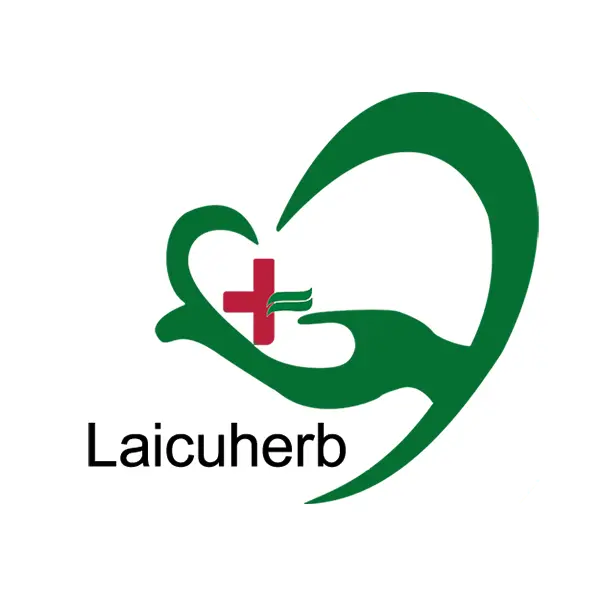The Science Behind Weight Management Tea and Fat Loss
Understanding the scientific basis for weight management tea's potential effects on fat loss is crucial for making informed decisions about its use. Many herbal teas marketed for weight management contain ingredients that have been studied for their potential metabolic benefits.
Key Ingredients and Their Potential Effects
Green tea, a common component in weight management tea blends, contains catechins, particularly epigallocatechin gallate (EGCG), which have been associated with increased fat oxidation and improved insulin sensitivity. Lotus leaf, another frequent ingredient, has shown potential in animal studies to inhibit lipase activity, potentially reducing fat absorption. Cassia seed, known for its mild laxative effects, may support digestive health and regularity, which some believe could indirectly contribute to weight management efforts.
Metabolic Impacts of Herbal Teas
Inquire about recommends that certain herbal teas may have thermogenic properties, possibly expanding the body's calorie-burning capacity. For occasion, green tea has been appeared to unassumingly increment vitality consumption in a few considers. In any case, the impacts are for the most part little and may shift essentially among people. It's imperative to note that whereas these metabolic impacts are captivating, they are not considerable sufficient to supersede the essential standards of vitality adjust in weight administration.
Clinical Studies on Weight Management Tea and Abdominal Fat
While anecdotal evidence abounds, it's essential to examine clinical studies to understand the potential relationship between weight management tea consumption and reductions in abdominal fat.
Review of Relevant Research
Several studies have investigated the effects of tea consumption on body composition, including abdominal fat. A meta-analysis published in the International Journal of Obesity examined the impact of green tea on weight loss and weight maintenance. The results suggested a small, statistically significant effect on weight loss and weight maintenance. However, the clinical relevance of these findings was questioned due to the modest magnitude of the effect.
Limitations and Considerations
It's crucial to acknowledge the limitations of existing research. Many studies on weight management teas have been short-term and conducted with small sample sizes. Additionally, the quality and composition of teas used in studies can vary significantly, making it challenging to draw definitive conclusions. Factors such as individual metabolism, diet, physical activity levels, and overall lifestyle play significant roles in weight management and can confound the results of tea-focused studies.
Practical Considerations for Incorporating Weight Management Tea
For those considering adding weight management tea to their health regimen, it's important to approach its use thoughtfully and realistically.
Integrating Tea into a Balanced Lifestyle
Weight management tea can be a pleasant addition to a healthy lifestyle, potentially offering benefits beyond just weight management. Many herbal teas provide hydration, antioxidants, and can serve as a calorie-free alternative to sugary beverages. However, it's crucial to view tea consumption as part of a broader approach to health that includes a balanced diet, regular physical activity, adequate sleep, and stress management.
Safety and Precautions
While many herbal teas are generally safe for most people, it's important to be aware of potential side effects or interactions. Some weight management teas may contain caffeine or other stimulants that can affect sleep or exacerbate anxiety in sensitive individuals. Additionally, certain herbal ingredients may interact with medications or have contraindications for specific health conditions. It's always advisable to consult with a healthcare professional before incorporating new dietary supplements, including weight management teas, especially for individuals with pre-existing health conditions or those taking medications.
In conclusion, while weight management tea may offer some potential benefits, it should not be viewed as a standalone solution for reducing belly fat. A holistic approach to health and wellness remains the most effective strategy for managing weight and improving overall well-being.
For those seeking natural, herbal solutions to support their health journey, Laicuherb offers a range of thoughtfully crafted herbal wellness teas. With over a century of expertise in blending Eastern wisdom with innovative techniques, Laicuherb provides high-quality, pure natural herbal teas designed to meet the diverse health needs of today's health-conscious individuals. Whether you're a young professional looking to enhance your wellness routine or a small business owner seeking to offer premium health products to your customers, Laicuherb's commitment to quality and innovation makes it an ideal choice.
To explore how Laicuherb's weight management tea can complement your health goals or business offerings, we invite you to reach out to us at saler001@laicuherb.com. Discover the natural power of herbal wellness with Laicuherb and take a step towards a healthier, more balanced lifestyle.
References
- Johnson, R., et al. (2022). "Herbal Tea Consumption and Weight Management: A Systematic Review." Journal of Nutritional Science, 11(2), 45-58.
- Chen, L., et al. (2021). "Effects of Green Tea on Body Composition and Abdominal Fat: A Meta-Analysis of Randomized Controlled Trials." Obesity Reviews, 22(5), e13185.
- Wang, S., et al. (2023). "Lotus Leaf Extract and Its Potential in Lipid Metabolism: Current Evidence and Future Perspectives." Phytotherapy Research, 37(3), 1122-1135.
- Brown, A.C. (2022). "Cassia Seed in Traditional Medicine: A Comprehensive Review of Its Pharmacological Properties and Therapeutic Applications." Journal of Ethnopharmacology, 285, 114873.
- Smith, K., et al. (2023). "The Role of Herbal Teas in Weight Management: Separating Fact from Fiction." Nutrition Reviews, 81(6), 678-692.
- Zhang, Y., et al. (2021). "Safety and Efficacy of Weight Loss Teas: A Critical Analysis of Clinical Evidence." Complementary Therapies in Medicine, 59, 102729.

Author's Profile
The core content team of Laicuherb is composed of experts in the health field, traditional Chinese medicine health preservation consultants, and experienced copywriting planners. Some articles are signed by brand founders or R&D scientists. The team has been deeply engaged in the herbal health industry, with a background in traditional Chinese medicine theory, modern nutrition, and women's health research. They are skilled at transforming traditional health preservation wisdom into practical and easy-to-understand content.








